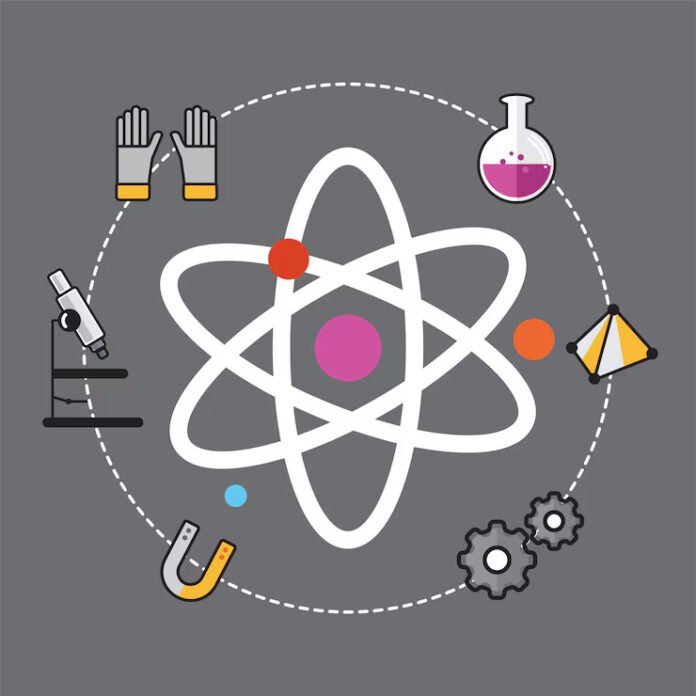Introduction
Physics is the branch of science concerned with the study of matter and energy and their interactions. It’s the basis of our understanding of the natural world, from the smallest particles to the largest structures in the universe.
It is all around us. It shapes every aspect of our lives, from the technologies we use to how we move and the essence of time and space. It’s a stream that explains the world’s mysteries. It also creates new technologies that improve our quality of life.
Physics is not just a subject studied in a classroom. It’s also a way of thinking, exploring the world, and making sense of the unknown. It’s a fascinating field with endless possibilities. And it is an essential part of our world.
Here, we delve into the many uses of physics, from experimental research to practical applications. Also, we discover why this field remains at the forefront of discoveries.
Experimental Physics
Experimental physics is a key aspect of physics. It uses hands-on methods to test theories and make discoveries. Scientists conduct tests to gain a deeper understanding of the natural world and its underlying principles.
These tests can be small using particle accelerators to study subatomic particles. They can also be big like observing astronomical phenomena with telescopes.
Particle physics uses high-speed particle accelerators to study the properties and interactions of subatomic particles. It has led to important discoveries such as the Higgs boson.
Astrophysics uses telescopes and other tools to study objects and events in the sky. It helps us understand the universe and its evolution.
Experimental physics plays a crucial role in expanding our knowledge of the physical world. It is a highly valued area of research for physicists globally.
Theoretical Physics
Theoretical physics is a branch of physics that uses math to explain and understand the physical world. One example of this is quantum mechanics. It helps us understand the interactions of tiny particles. It has led to amazing discoveries, like quantum entanglement, quantum qubit, atomic watch, tunneling effect, and many more. And it has been proven through many experiments.
Another important aspect of theoretical physics is general relativity. It describes how objects move and behave in the presence of gravity. This theory has been successful in explaining the movement of planets and stars, and black holes.
It is important for our understanding of the world around us. With mathematical models and simulations, physicists can make predictions and explore the universe. It remains an important and highly valued area of research for physicists globally.
Applied Physics
Applied physics is the practical use of physics principles. Basic laws and theories are used to solve real-world problems. This field is important in engineering, medicine, and energy production.
In engineering, applied physics helps design and build new technologies such as engines, computers, and cell phones. In medicine, it can create new tech and treatments, like imaging systems and radiation therapy.
It also improves energy efficiency and new sources of renewables.
Applied physics is an interdisciplinary field that is constantly evolving. Applied physicists help to find new solutions to some of society’s biggest challenges. Applied physics always plays a crucial role in improving our daily lives.
Interdisciplinary Applications of Physics
Interdisciplinary physics uses physics in other fields like biology, computer science, and economics. Researchers use physics to study and solve problems in their respective areas.
For instance, biophysics uses physics to understand biological systems, while econophysics studies financial markets.
It is important because it helps connect different scientific fields and find new solutions to problems. By using physics in new ways, interdisciplinary physicists are making a big impact in various areas. It helps bring different scientific disciplines together to find new solutions.
Recommended Articles:
Uses of LED – Introduction and Types Uses
Uses of Microscopes
Definition, Features, and Uses of Plane Mirrors
Uses of Rectifier and their Applications
What is a Variable Star and Its Types
Physics plays a crucial role in our daily lives, from the technology we use to the medical treatments we receive and everything in between. Some of the most important discoveries in physics include the laws of motion and gravitation, the theory of relativity, and the discovery of the Higgs boson particle. Physics advances our understanding of the universe by providing a framework for understanding the behaviour of matter and energy and by making predictions about the behaviour of these systems. Yes, anyone can study physics, regardless of background or field. Physics is an interdisciplinary field that draws on a wide range of knowledge and skills. Studying physics can lead to a deeper understanding of the world around us, as well as opportunities for careers in a wide range of fields, including engineering, medicine, energy production, and more. Interdisciplinary physics uses physics in other fields like biology, computer science, and economics. Researchers use physics to study and solve problems in their respective areas. For example, biophysics uses physics to understand biological systems.Uses Of In Physics FAQs
What is the importance of physics in our daily lives?
What are some of the most important discoveries in physics?
How does physics advance our understanding of the universe?
Can anyone study physics?
What are some of the benefits of studying physics?
What are interdisciplinary physics uses?
